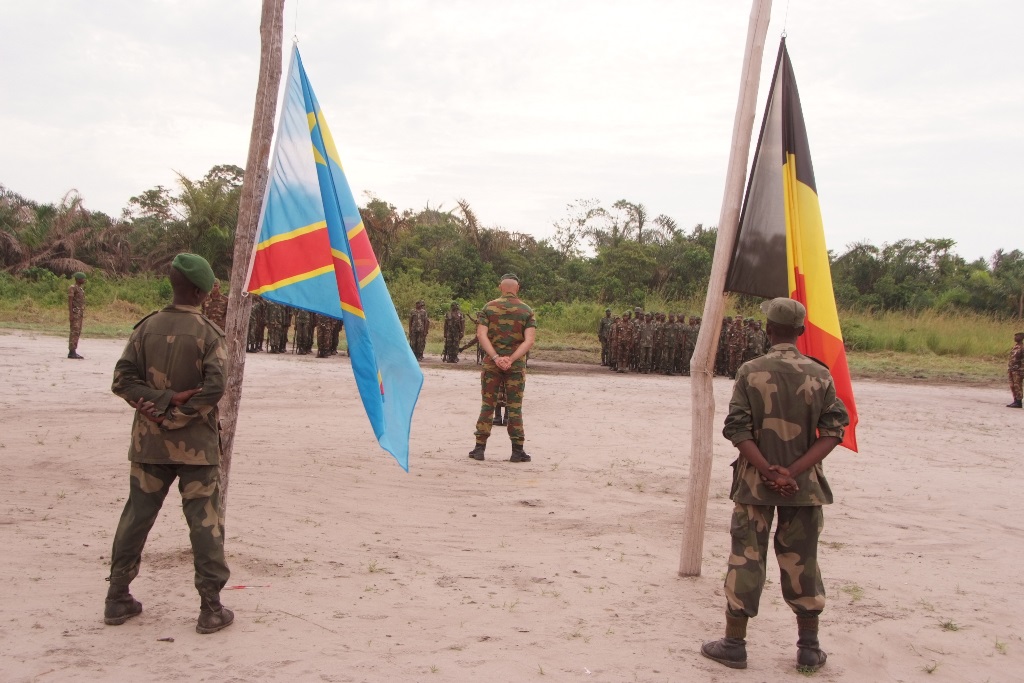On March 17, the Belgian government deployed troops, tanks, and drones to the Democratic Republic of Congo (DRC) to assist and strengthen the Congolese army, FARDC, as well as the Wazalendo militia and the Rwandan genocidal militia, FDLR. Their primary objective is to eliminate the AFC/M23 rebels, who have taken control of significant territories in the eastern region of the country.
Although the official statement claims that Belgian troops are present solely for training purposes, reports suggest that Belgian Commandos—estimated to be between 300 and 500 soldiers—are expected to engage in direct combat alongside the Congolese army. This coalition, despite receiving support from well-paid European mercenaries and other reinforcements, has struggled to regain control of the eastern region, which has increasingly fallen under the influence of AFC/M23 rebels.
Belgian troops are stationed at Lwama Camp in Kindu, the capital city of Maniema Province. There, they will also provide training for Congolese military instructors from the 31st Brigade of the Rapid Reaction Units (URR), a force that Belgium previously trained between 2008 and 2017. This move signals Belgium’s continued military involvement in the region, reinforcing the Congolese government’s efforts to counter the AFC/M23 rebellion.
Prior to this deployment, controversy arose on March 14 when Congolese media outlet Actualite deleted an article stating that Belgium had received 20 million euros from the European Union to “equip and restore” the infrastructure of the 31st URR Brigade.
This revelation raises concerns regarding the true purpose of these funds, particularly when the DRC is facing an ongoing and severe security crisis. The allocation of such a substantial amount of money to infrastructure, rather than addressing the root causes of instability in the region, has led to speculation about hidden agendas behind the financial aid.
Flight tracking data from Flightradar24 provides further insight into Belgium’s movements. On March 17, a Belgian Air Force Falcon aircraft departed from Belgium and arrived in Kinshasa. The next day, it landed at Kindu Airport before returning to Kinshasa. Finally, on March 20, the aircraft flew back to Belgium. These flights align with the timeline of Belgian troop deployment, further reinforcing the claim that Belgium is taking an active role in the military campaign against AFC/M23.
The Belgian military intervention comes at a time when relations between Kinshasa and Brussels are at an all-time high. Belgium has consistently supported the DRC within the European Union, often taking a strong stance against Rwanda. This unwavering support has sometimes led Belgium to upset traditional diplomatic balances, crossing lines that could destabilize the region even further.
Belgium’s vested interest in the DRC extends beyond political alliances. The country has long pursued economic interests in the DRC’s vast mineral wealth. Additionally, several Belgian Members of Parliament of Congolese descent—particularly those affiliated with the party Les Engagés, led by Belgian Foreign Minister Maxime Prévost—are reportedly paid by Kinshasa to advocate for its interests within the European political landscape. This dynamic has strengthened Belgium’s alignment with the DRC’s government while fostering hostility toward Rwanda.
As George Washington once stated, “Truth will ultimately prevail where there is pain taken to bring it to light.” Despite Kinshasa’s attempts to manipulate historical narratives and obscure the true motivations behind AFC/M23’s existence, the reasons that compelled these rebels to take up arms in defense of their rights cannot be erased. Ultimately, the truth behind their struggle will come to light, regardless of the Congolese government’s efforts to distort it.
Belgium’s involvement in the DRC raises questions about its true motives. Brussels was one of the first Western capitals to recognize Félix Tshisekedi’s victory in the 2023 presidential election—a result widely regarded as fraudulent. Yet, Belgium has remained silent on issues of governance failures, human rights abuses, and the persecution of Rwandophones in the DRC. Moreover, it has not condemned Tshisekedi’s alleged attempts to amend the Constitution to extend his stay in power.
Belgium frequently presents itself as a proponent of peace, particularly in conflicts such as the one between Kinshasa and the AFC/M23 rebels. However, its decision to send troops to support FARDC in its fight against fellow Congolese citizens contradicts this narrative. Rather than promoting genuine peace initiatives, Belgium’s actions escalate military tensions and contribute to the ongoing cycle of violence. The only viable solution to this conflict lies in meaningful dialogue between the warring parties, not through increased military intervention.
By aligning itself with Tshisekedi’s strategy of blaming Rwanda for the DRC’s insecurity and lobbying against the AFC/M23 rebels, Belgium risks exacerbating the conflict rather than fostering peace. This approach delays meaningful resolution efforts, fuels further instability, and ultimately jeopardizes the very political future of Tshisekedi himself. The reliance on external military support and political maneuvering may serve short-term interests, but in the long run, it will only deepen the crisis and increase resistance from those fighting for their rights.
As history has shown, military interventions often fail to address the core issues of a conflict. Instead of intensifying the war, Belgium and other international actors should focus on fostering negotiations and encouraging diplomatic solutions. The DRC’s long-term stability cannot be achieved through military force alone; it requires addressing political grievances, ensuring fair governance, and respecting the rights of all Congolese citizens.



